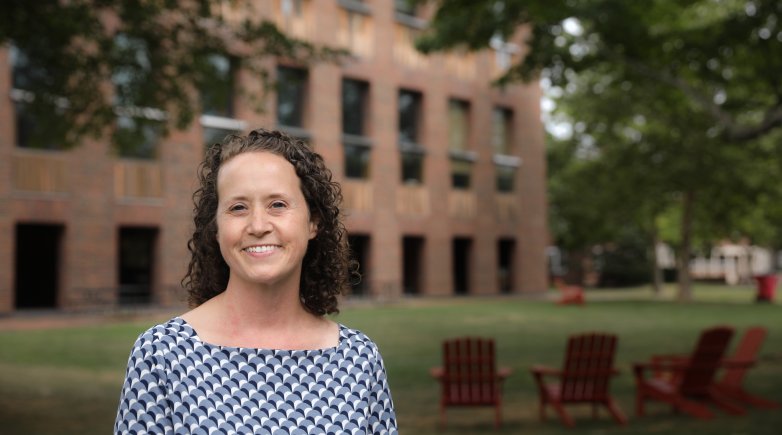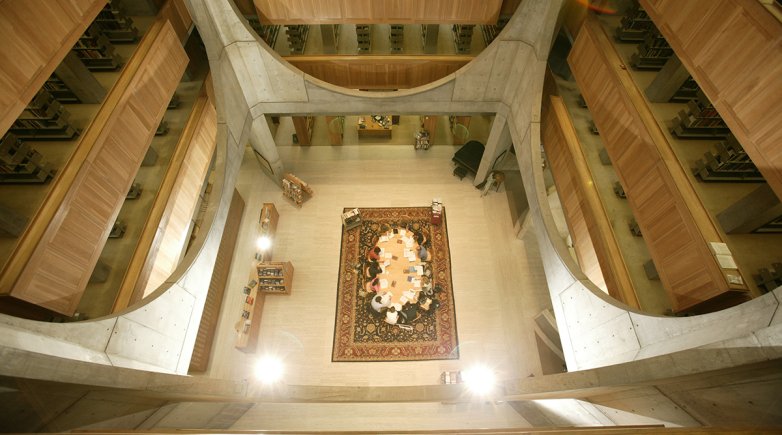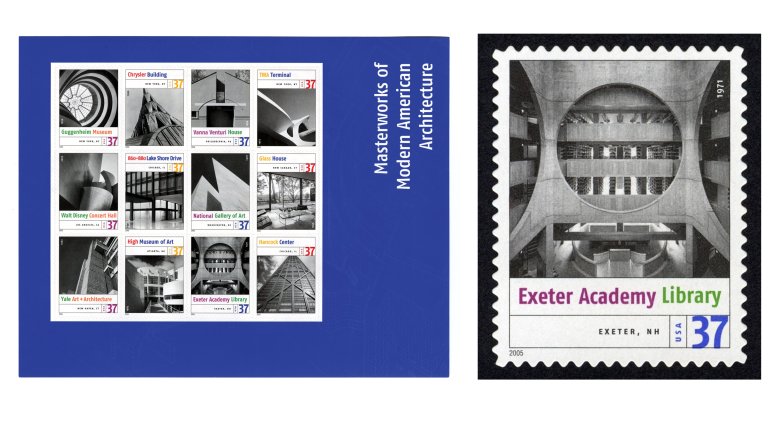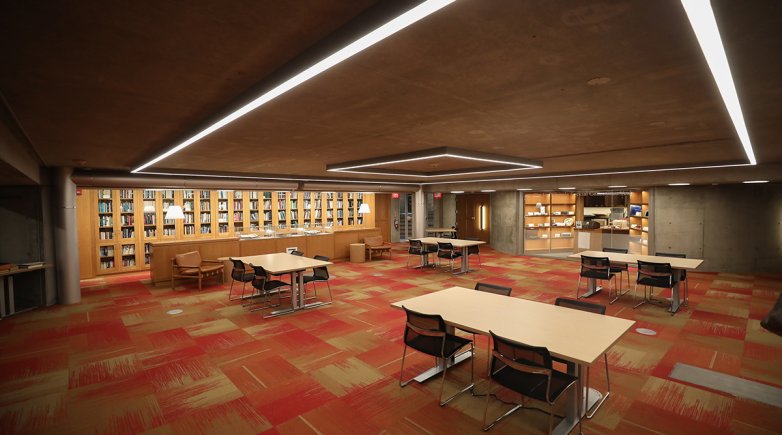Soon after arriving at Exeter, Laura Wood had a conversation with a former faculty member who expressed concern that students just weren’t using the Class of 1945 Library anymore.
“Then in the next breath, [the person] mentioned, ‘Well, the students are doing their research using databases,’ and then went on from there,” she recalls. “So, I brought the conversation back around to say that if the students are using databases for research, then they are using the Library. That is the Library.”
In our internet-dependent, post-card catalog age, Wood knows and embraces the challenges that come with ensuring that a school library stays relevant to students, teachers and other community members. This summer, she kicked off her tenure as only the fifth Academy Librarian in more than 50 years, having most recently worked as the associate university librarian for research and education at Harvard University.
An avid hiker and snowshoer, Wood lives off campus with her wife and 12-year-old son. As she settled into her new role this summer, we spoke with her about her background and her introduction to Exeter, as well as her strategy for collaborating with other departments and leading the Library into its next phase.
How did you decide to become a librarian?
I thought I wanted to become a professor. I was very interested in the study of religion, and I was pursuing a master's degree [at Yale Divinity School]. But I came to the very quick realization that I did not want to be a writer, and that if I were to pursue being a professor, writing would be a major component. That got me thinking, what’s closer to what I do love? Finding information, supporting other people's research, organizing things — the way that libraries do. I went on to get a library science degree, so I could put that into practice and have a practical application of my religion studies.
Having worked at the university level up to this point, what made you want to come to a secondary school like Exeter?
Like many people worldwide, I found myself rethinking how I spent my time before the pandemic. It crystallized for me some things that were important that I hadn't prioritized and weren't really present in the work that I was doing, like being a member of a community. I loved working in research universities and with librarians, but I didn't get to work with students, and I didn't get to participate in the life of the university in any kind of broad way. I'm interested in libraries being a part of the educational process. I think of myself as an educator, and I was looking for an opportunity where I could better identify as a member of a community of educators.
What are some of your initial impressions of Exeter and the Academy Library?
I don't feel like I have the full taste [of the school] yet. Exeter Summer is great to see and to be part of, and it gave me a chance to focus on the staff and the day-to-day workings of the Library without being overwhelmed. The Library staff here have done a great job managing through a big transition; they have been experimenting with new programs and adapting existing work to the new constraints of the pandemic. The demands on them have rapidly changed, including how the building gets used to support PEA needs.
What do you think the role of the Academy Library is in life at Exeter?
Throughout my career, because of the rise of digitization, it's been harder and harder for people to understand what the role of libraries can be. I always think of libraries as three parts. You have a building, a collection and expertise (meaning the people who can help the other stuff make sense). There's a strong weight [at Exeter] on the Library as a building, but there may be opportunity for a better balance as we think about what libraries can do and what this library already does, much of which is hard to see because it is bits and bytes and digital. It's a constant learning process for me, of how we can work with technology and with content in digital forms and maximize the library’s ability to help faculty and students as they pursue their intellectual questions and conversations (as well as assignments).
Could you share some goals for the school year ahead?
My goal is to be out of the library a lot. I want to understand the athletics program. I want to understand CAPS [Counseling and Psychological Services]. I want to understand the life of the classroom. My goal is to figure out how this library can continue with and increase its ability to partner with the rest of the institution, and to meet needs that maybe people haven't even recognized yet. Because that's what libraries do — we can provide things you didn't know you needed.



